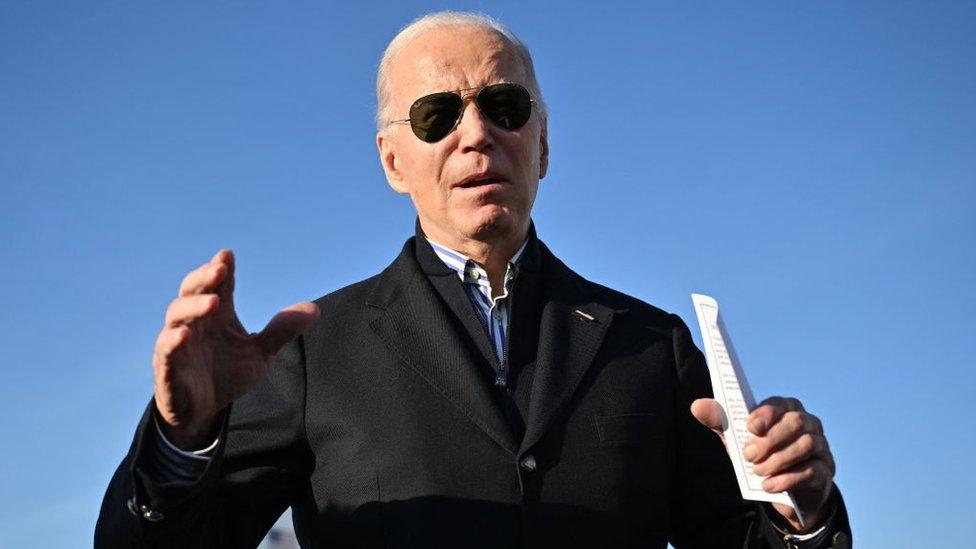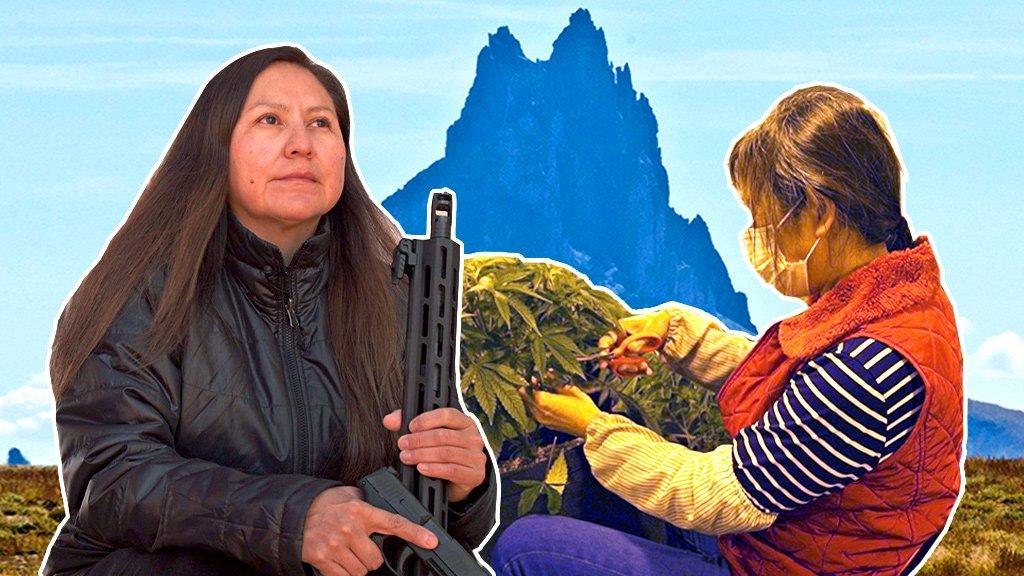Biden grants pardons for certain marijuana offences
- Published

US President Joe Biden has announced pardons for certain federal marijuana convictions and clemency for 11 people imprisoned for non-violent drug crimes.
The executive order covers those convicted under the federal law of simple possession, attempted simple possession or use of marijuana.
It also applies to certain offences on federal lands.
Mr Biden said in a statement: "Too many lives have been upended because of our failed approach to marijuana."
"It's time that we right these wrongs."
Mr Biden's more lenient approach marks a turnaround for the politician who as a senator wrote a 1994 crime bill that is widely blamed for mass incarceration, disproportionately of black people, for drug offences.
Cannabis boom: Why Oklahoma is a 'wild wild west'
The White House said thousands of people would be eligible for the pardons. They must submit applications to the justice department.
The Democratic president's action expands on an executive order from last year, when his administration pardoned thousands of people who were convicted under federal law of possessing small amounts of marijuana.
Twenty-four states and Washington DC have decriminalised or legalised marijuana use in some or all circumstances. But it remains illegal at the federal level.
Earlier this year, the Health and Human Services Administration recommended that the Drug Enforcement Administration loosen federal restrictions on marijuana.
Mr Biden's order does not cover individuals who have been convicted of state-level crimes, but he urged governors to take similar action.
Sarah Gersten, executive director and general counsel for the Last Prisoner Project, called the executive order "largely symbolic".
"As the president has acknowledged, the vast majority of people convicted of cannabis are at the state level," Ms Gersten said.
She added that while "the number of people who have federal offences are very low, a pardon at the federal level doesn't effectuate the kind of record clearance we want to see".
The order also did not cover other marijuana-related offences that carry prison time.
It would not pardon, for example, Stephanie Shepard, the director of advocacy for the Last Prisoners Project.
She was imprisoned for conspiracy to distribute marijuana several years ago. The sentence continues to affect her life, and she noted that individuals with criminal records may struggle to find housing or jobs because a conviction will appear on a background check.
"I really wish he [Mr Biden] would just sit down and talk to someone who has an incarcerated parent, that has grown up without their parent because they're incarcerated, but at the same time can now walk down the street and see multiple dispensaries selling the same plant that their parents did," she said.
The executive order, in Ms Shepard's view, was "just not enough".
Related topics
- Published9 May 2021
